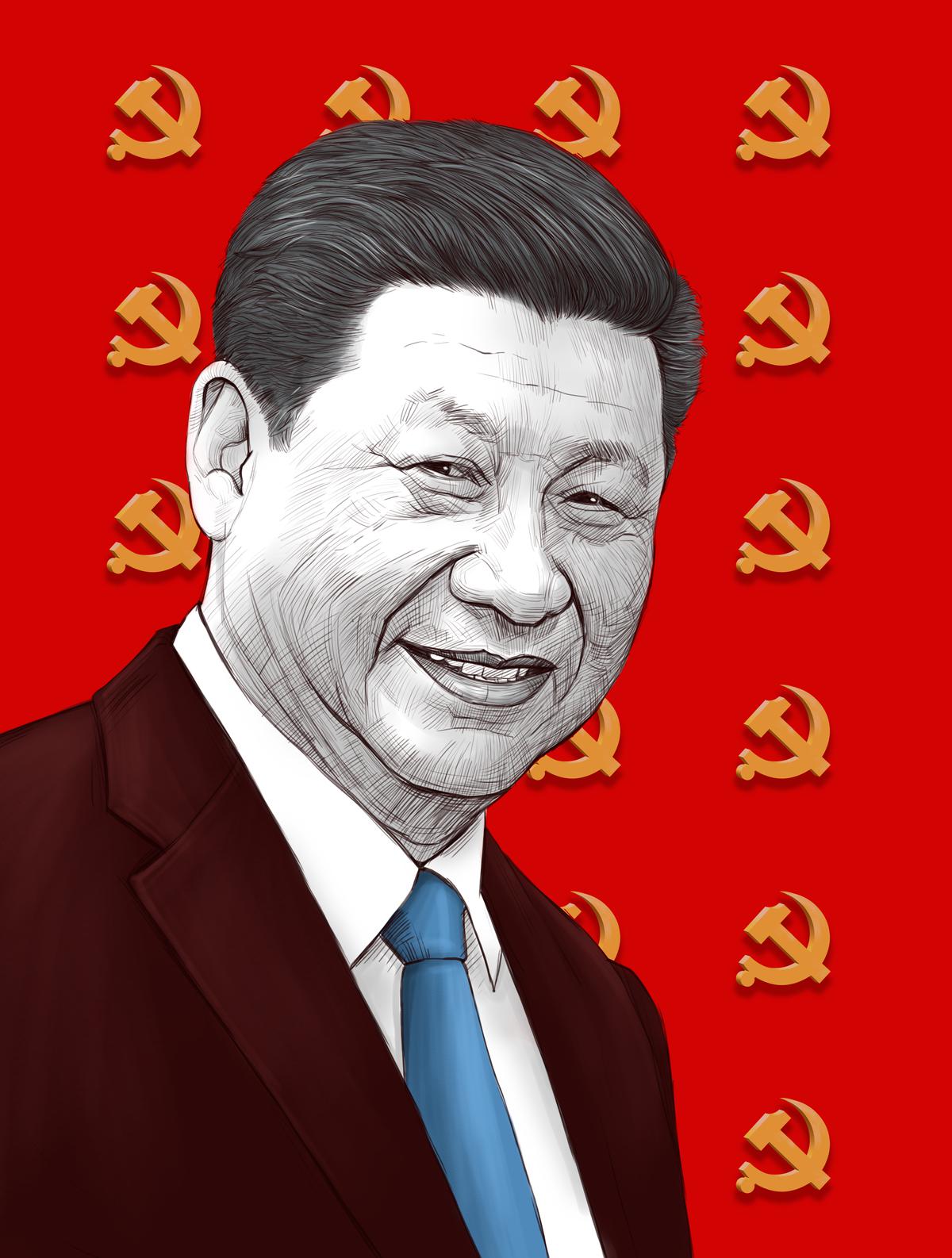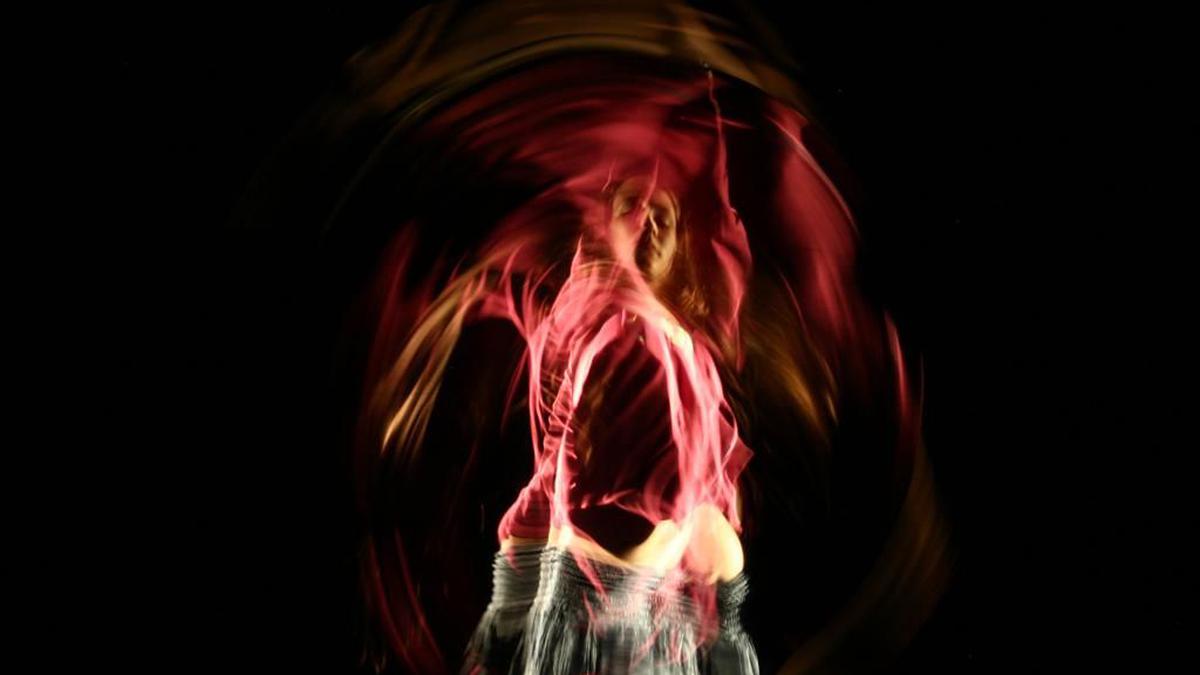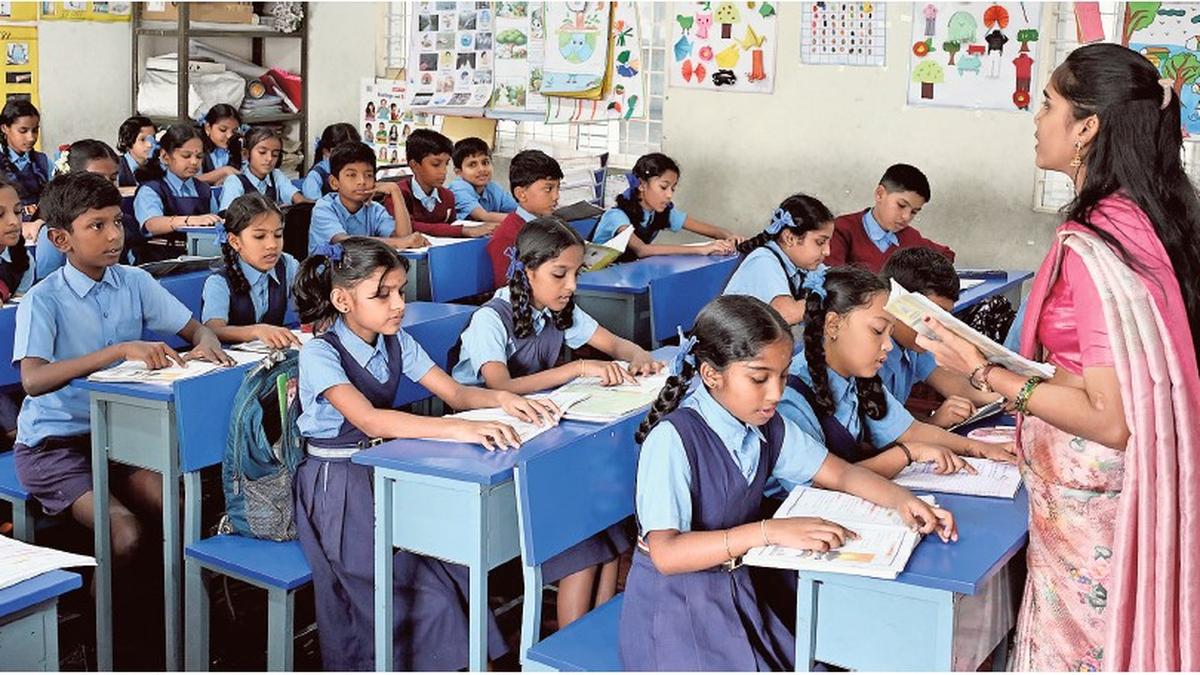Facing an existential crisis in 2012, the Communist Party of China turned to a ‘princeling’. A decade on, Xi Jinping has rewritten the Party rulebook and is laying the groundwork for years of continued dominance
Facing an existential crisis in 2012, the Communist Party of China turned to a ‘princeling’. A decade on, Xi Jinping has rewritten the Party rulebook and is laying the groundwork for years of continued dominance
When Xi Jinping ascends the stage of the Great Hall of the People in Beijing on Sunday morning to open, for a second time, the ruling Communist Party’s once-in-five-year congress, his appearance was meant to have been his last.
For the past three decades, the leaders of China’s Communist Party (CPC) have passed on the baton to their successors every 10 years, following a two-term limit set by the former leader Deng Xiaoping. The 18th Party Congress in 2012, when Xi took over, saw Hu Jintao step down. Mr. Hu himself ascended to the top job at the 16th Congress in 2002, taking over from Jiang Zemin.
For many observers in China, the precedent of the term limit was what distinguished China from other autocracies. It enabled three largely smooth transfers of power, and spared the brutal succession struggles and civil wars that systems of government without democratic elections are often prone to. It was a key feature of the “collective leadership” that Deng came up with to prevent a recurrence of Mao’s cult of personality that set China back by decades and claimed the lives of millions of Chinese through the catastrophic Great Leap Forward and Cultural Revolution.
Also Read | Xi Jinping all set to rewind China’s clock back to ‘one leader rule’ of Mao era
Yet, if there is one thing that Mr. Xi has made clear during a decade at the helm, he has little time for precedent.
Indeed, what is most notable about the 20th Party Congress — which convenes on Sunday for one week and will usher in a sweeping leadership change across all levels of the CPC, barring, of course, its highest position — is the emphasis not on change, as in every past recent congress, but continuity. It is, for a “princeling” with impeccable “Red” credentials, a coronation.
Princeling to purged
Mr. Xi’s rise to the top of the CPC is, in a strange sense, both expected and surprising. Mr. Xi was born to “red royalty”, and like fellow princelings, as the children of the revolutionary leaders who were Mao’s contemporaries were known, grew up in the exclusive courtyard compounds around Zhongnanhai, the former imperial gardens that today serve as the seat of the party’s power.
Mr. Xi’s rise to the top was, however, by no means linear. The Xi family’s status was turned around overnight from privileged to persecuted when Mao went after Xi’s father, Xi Zhongxun, among the many top leaders who Mao purged during the Cultural Revolution (1966-76). The older Xi was made to undergo humiliating “struggle sessions” in public at the hands of Mao’s Red Guards.
His privileged status stripped overnight, the younger Xi, 15 at the time, was sent down to the countryside with 17 million other young Chinese, part of Mao’s campaign to ensure that educated youth “get re-educated by the poor”.
If some dreaded the prospect of a hard life in the villages, Mr. Xi later recalled he was happy to leave Beijing behind. “Everyone was crying. I was laughing,” he said. “My family who had accompanied me to the train had asked why, and I told them, I’d cry if I wasn’t leaving. How can I be sure I have a future here?” The Xi family’s political fortunes had hit rock bottom, so much so that Mr. Xi wasn’t sure he would ever return to the capital.
The years Mr. Xi spent in the wilderness in the village of Liangjiahe would, he later wrote, turn out to be a defining period in shaping his understanding of China’s politics. Mr. Xi, after all, had a personal grasp of the consequences of a system where power is arbitrary, and the winner takes all.
The taint of his father’s disgrace would follow Mr. Xi, who was initially barred from joining the Communist Youth League, an organisation for youth that is also an entry into party politics. Mr. Xi had to apply eight times before finally being accepted into the youth league.
Membership into the CPC itself was even harder because of his family history, and he was only accepted after his 11th application attempt. “Where was the verdict against my father?” Mr. Xi later wrote of his multiple rejections. “When a fault is committed, there is a verdict. But where is the one against my father? Who do you think I am? What have I done? Have I written or chanted counter-revolutionary slogans? I am a young man who wants to build a career. What is the problem with that?”
Rising up the ranks
Mr. Xi’s troubled childhood did not turn him against a system where power was overconcentrated. Instead, it appears to have given him a life-long lesson in how power is exercised in China — and how to not end up on the losing side of an unforgiving winner-takes-all system.
When the older Xi was rehabilitated by Deng Xiaoping like many other leaders cast aside by Mao, his son’s political fortunes turned around. A family history that was a burden turned out to be a boon as his father, who rose to the position of Vice Premier, played a key role in the economic reforms of the Deng era.
Also Read | Xi Jinping’s power in China grows after unforeseen rise to dominance
Mr. Xi’s connections enabled him entry into the prestigious Tsinghua University in 1975, and secured for him a politically important post working as a young aide in the General Office of the Central Military Commission, the PLA’s top ruling body. The early posting would give him a familiarity with the party’s military — a key asset that allowed him to stamp his authority on the PLA as well as later usher in sweeping reforms that past leaders going back to Deng had failed to implement.
Mr. Xi’s political instincts served him well in rising up the ranks. He was aware, more than most, of the fickle nature of Communist Party politics. He sensed correctly that his family background — which had now turned from liability to asset — could end up counting against him if he continued with privileged postings.
He went against his family’s wishes in 1982 and left Beijing, taking up a post in the poor county of Zhengding in Hebei province. The move was politically astute, as it would later protect him from criticisms of exploiting his princeling status and showed he was able to roll up his sleeves.
Postings in the prosperous eastern coastal regions would follow, including Fujian, Zhejiang and Shanghai. However, Mr. Xi was never set for the top job, and was expected to, in the party’s 17th Congress in 2007, emerge as the second-ranked leader of the next generation behind Hu Jintao’s protégé, Li Keqiang. China’s political world was left shocked, however, when Mr. Xi emerged out of the congress ahead of Mr. Li. What transpired behind closed doors remains unknown to this day.
The compromise candidate
What may have propelled Mr. Xi to the top post was an apparent perception of him as a compromise candidate who did not hail from the factions associated with former leaders Jiang and Hu, and also had the backing of fellow “princelings” and Red families.
Mr. Xi’s ascension in 2012 was, however, by no means smooth. In the weeks leading up the congress, the Party was rocked by an embarrassing scandal involving another princeling, Bo Xilai, who was once seen as a Xi rival. The party purged Mr. Bo after a scandal involving his wife’s murder of a British business associate. Lurid details of the Bo family’s corruption became the single biggest talking point in China just as Mr. Xi was taking over.
The sense of crisis engulfing the party a decade ago now seems a distant memory, and the real story of how close the party came to upheaval still remains untold given the black box that is Chinese politics. After taking over, Mr. Xi purged the former security czar Zhou Yongkang, who by some accounts had emerged as powerful as an ineffective Hu Jintao during the past term through his firm grip of the party’s vast security apparatus, and had been seeking to use his power to derail Mr. Xi’s ascension, in apparent cahoots with Mr. Bo.
Mr. Xi turned the Bo scandal to his advantage, impressing upon the party’s elite that the past decade under weak leadership had led to unchecked corruption that had brought the party to the edge of ruin. Mr. Xi was given the mandate to launch a sweeping anti-corruption campaign that broke all precedent by going after hitherto untouched top leaders. Besides Mr. Zhou, the PLA’s highest ranking Generals, Xu Caihou and Guo Boxiong, were also purged.
The anti-corruption campaign left Mr. Xi in full command as he finished his first term in 2017. At the 19th Congress held that year, Mr. Xi became the first leader since Mao to have his name written into the party constitution — his ideology, called Xi Jinping Thought on Socialism with Chinese Characteristics for a New Era, was added to the constitution — while in office.
The compromise candidate very quickly turned out rather differently. Those that, out of hope rather than evidence, expected Mr. Xi to show his father’s reformist credentials were left alarmed by one of his very first speeches delivered during his first trip out of Beijing, to Guangdong, the setting of China’s reforms.
Mr. Xi used Guangdong’s backdrop to instead launch a firm defence of Communist ideology that captures clearly his political outlook. “Why did the Soviet Union disintegrate?” Mr. Xi asked. “Why did the Soviet Communist Party collapse? An important reason was that their ideals and beliefs had been shaken. In the end, ‘the ruler’s flag over the city tower’ changed overnight. It’s a profound lesson for us! To dismiss the history of the Soviet Union and the Soviet Communist Party, to dismiss Lenin and Stalin, and to dismiss everything else is to engage in historic nihilism… Why must we stand firm on the Party’s leadership over the military? Because that’s the lesson from the collapse of the Soviet Union. In the Soviet Union where the military was depoliticised, separated from the Party and nationalised, the party was disarmed. A few people tried to save the Soviet Union; they seized Gorbachev, but within days, it was turned around again, because they didn’t have the instruments to exert power. Yeltsin gave a speech standing on a tank, but the military made no response, keeping so-called ‘neutrality’. Finally, Gorbachev announced the disbandment of the Soviet Communist Party in a blithe statement. A big Party was gone just like that. Proportionally, the Soviet Communist Party had more members than we do, but nobody was man enough to stand up and resist.”
‘Core’ leadership
Mr. Xi, of course, presented himself as that “man”. At the very start of his second term, Mr. Xi ended the two-term limit for the post of President that Mr. Jiang and Mr. Hu had followed. A massive restructuring of the Party-State to bring greater centralisation under his “core” leadership, as well as a sweeping reform of the military, followed.
As Zhang Lifan, a historian and follower of elite Party politics who lives in Beijing, put it to this correspondent when Mr. Xi rewrote the Party rulebook and abandoned the collective leadership model, he was in a sense “the right man, at the right place, at the right time”.
“Before he came to power, there were many negative feelings about the collective leadership system inside the party,” he said. “Every member of the Politburo Standing Committee had their own power, their own opinion, and no one was taking responsibility. They wanted a strongman to take charge, and change this situation. Then he launched the anti-corruption campaign. Many families are afraid of being caught, and do not dare to fight him. This allowed him to centralise power rapidly.” Centralisation has also meant a concentration of power in the party’s hands and the disappearance of dissent, marking a reversal of the two decade-long trend in the Jiang and Hu eras that saw a gradual, even if limited, attempt to institutionalise the use of power and establish a system of “rule by law” to check party power.
Shrinking space
The space for expression has also shrunk. A briefly vibrant social media space that emerged during the end of the Hu years has now become completely controlled by party censors. A reminder of the degree of control was on display in recent days when users were reportedly suspended from WeChat for sharing images of a rare protest in Beijing — banners calling for an end to the zero-COVID regime, for freedom, and for Mr. Xi’s removal were displayed on a bridge in the city by a lone protester, who was taken away by the police.
Centralisation is likely to be the continued trend in Mr. Xi’s next term. The party’s next Politburo, which Mr. Xi is expected to head for an unprecedented third five-year term, will be presented to the Chinese public on October 23, the day after the 20th Congress concludes.
It is likely to have an even greater share of Mr. Xi’s men (the top Chinese leadership is mostly men) who served with him in Fujian and Zhejiang. Mr. Xi, however, is unlikely to promote any leader who is young enough to emerge as his heir in five years’ time. This will ensure his unchallenged control without the distraction of a nominated successor.
What happens in 2027 remains uncertain. With the top leadership full of his men, Mr. Xi may not need to continue to wear all three crowns as head of the party, head of state, and Chairman of the Central Military Commission. Indeed, the question of what posts Mr. Xi may or may not continue to hold may well become moot by then, with most of his men in the seats of power. By then, the party, just as it once was with Mao, may well have become synonymous with Mr. Xi, its next helmsman.
The Gist
- At 15, Xi Jinping was sent down to the countryside with 17 million other young Chinese, part of Mao’s campaign to ensure that educated youth “get re-educated by the poor”
- When the older Xi was rehabilitated by Deng Xiaoping, his son’s political fortunes turned around. A family history that was a burden turned out to be a boon as his father, who rose to the position of Vice Premier, played a key role in the economic reforms
- Xi was never set for the top job, and was expected to, in the party’s 17th Congress in 2007, emerge as the second-ranked leader of Li Keqiang. However, he emerged out of the congress ahead of Li
- The party’s next Politburo, which Mr. Xi is expected to head for an unprecedented third five-year term, will be presented to the Chinese public on October 23, the day after the 20th Congress concludes






